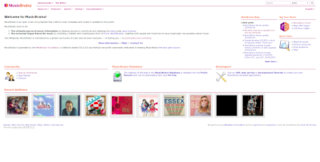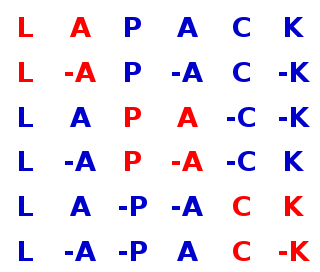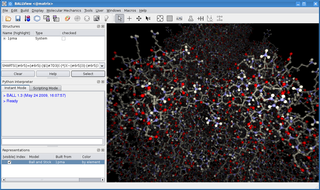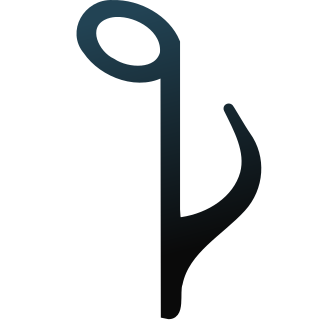Related Research Articles

MusicBrainz is a MetaBrainz project that aims to create a collaborative music database that is similar to the freedb project. MusicBrainz was founded in response to the restrictions placed on the Compact Disc Database (CDDB), a database for software applications to look up audio CD information on the Internet. MusicBrainz has expanded its goals to reach beyond a CD metadata storehouse to become a structured online database for music.

Optical character recognition or optical character reader (OCR) is the electronic or mechanical conversion of images of typed, handwritten or printed text into machine-encoded text, whether from a scanned document, a photo of a document, a scene photo or from subtitle text superimposed on an image.

In computer programming, an S-expression is an expression in a like-named notation for nested list (tree-structured) data. S-expressions were invented for and popularized by the programming language Lisp, which uses them for source code as well as data.

Fractal compression is a lossy compression method for digital images, based on fractals. The method is best suited for textures and natural images, relying on the fact that parts of an image often resemble other parts of the same image. Fractal algorithms convert these parts into mathematical data called "fractal codes" which are used to recreate the encoded image.
Speex is an audio compression codec specifically tuned for the reproduction of human speech and also a free software speech codec that may be used on voice over IP applications and podcasts. It is based on the code excited linear prediction speech coding algorithm. Its creators claim Speex to be free of any patent restrictions and it is licensed under the revised (3-clause) BSD license. It may be used with the Ogg container format or directly transmitted over UDP/RTP. It may also be used with the FLV container format.
In computing, Deflate is a lossless data compression file format that uses a combination of LZ77 and Huffman coding. It was designed by Phil Katz, for version 2 of his PKZIP archiving tool. Deflate was later specified in RFC 1951 (1996).

Scanner Access Now Easy (SANE) is an open-source application programming interface (API) that provides standardized access to any raster image scanner hardware. The SANE API is public domain. It is commonly used on Linux.

Numerical Recipes is the generic title of a series of books on algorithms and numerical analysis by William H. Press, Saul A. Teukolsky, William T. Vetterling and Brian P. Flannery. In various editions, the books have been in print since 1986. The most recent edition was published in 2007.
The Adaptive Multi-Rateaudio codec is an audio compression format optimized for speech coding. AMR is a multi-rate narrowband speech codec that encodes narrowband (200–3400 Hz) signals at variable bit rates ranging from 4.75 to 12.2 kbit/s with toll quality speech starting at 7.4 kbit/s.

LAPACK is a standard software library for numerical linear algebra. It provides routines for solving systems of linear equations and linear least squares, eigenvalue problems, and singular value decomposition. It also includes routines to implement the associated matrix factorizations such as LU, QR, Cholesky and Schur decomposition. LAPACK was originally written in FORTRAN 77, but moved to Fortran 90 in version 3.2 (2008). The routines handle both real and complex matrices in both single and double precision. LAPACK relies on an underlying BLAS implementation to provide efficient and portable computational building blocks for its routines.
Panorama Tools(also known as PanoTools) are a suite of programs and libraries for image stitching, i.e., re-projecting and blending multiple source images into immersive panoramas of many types. It was originally written by German physics and mathematics professor Helmut Dersch. Panorama Tools provides a framework An updated version of the Panorama Tools library serves as the underlying core engine for many software panorama graphical user interface front ends.

The Fastest Fourier Transform in the West (FFTW) is a software library for computing discrete Fourier transforms (DFTs) developed by Matteo Frigo and Steven G. Johnson at the Massachusetts Institute of Technology.

BALL is a C++ class framework and set of algorithms and data structures for molecular modelling and computational structural bioinformatics, a Python interface to this library, and a graphical user interface to BALL, the molecule viewer BALLView.

Carrot² is an open source search results clustering engine. It can automatically cluster small collections of documents, e.g. search results or document abstracts, into thematic categories. Carrot² is written in Java and distributed under the BSD license.
Anki is a free and open-source flashcard program using active recall testing and spaced repetition, techniques from cognitive science for memorization. The name comes from the Japanese word for "memorization".
Proprietary software is software that, according to the free and open-source software community, grants its creator, publisher, or other rightsholder or rightsholder partner a legal monopoly by modern copyright and intellectual property law to exclude the recipient from freely sharing the software or modifying it, and—in some cases, as is the case with some patent-encumbered and EULA-bound software—from making use of the software on their own, thereby restricting their freedoms.

Quod Libet is a cross-platform free and open-source audio player, tag editor and library organizer. The main design philosophy is that the user knows how they want to organize their music best; the software is therefore built to be fully customizable and extensible using regular expressions and boolean logic. Quod Libet is based on GTK and written in Python, and uses the Mutagen tagging library.

GPUOpen is a middleware software suite originally developed by AMD's Radeon Technologies Group that offers advanced visual effects for computer games. It was released in 2016. GPUOpen serves as an alternative to, and a direct competitor of Nvidia GameWorks. GPUOpen is similar to GameWorks in that it encompasses several different graphics technologies as its main components that were previously independent and separate from one another. However, GPUOpen is entirely open source software, unlike GameWorks which is proprietary and closed.
In computer science, the Krauss wildcard-matching algorithm is a pattern matching algorithm. Based on the wildcard syntax in common use, e.g. in the Microsoft Windows command-line interface, the algorithm provides a non-recursive mechanism for matching patterns in software applications, based on syntax simpler than that typically offered by regular expressions.
References
- ↑ Haralambos Marmanis; Dmitry Babenko (2009). Algorithms of the Intelligent Web. Manning. ISBN 978-1-933988-66-5.